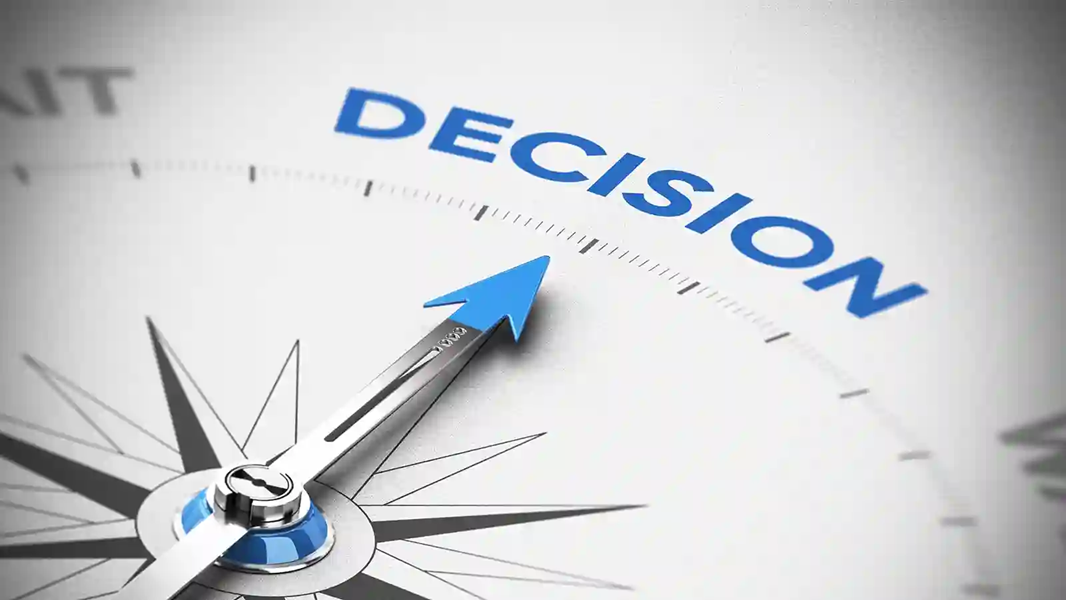The Power of Decision Making: Why Choosing the Right Course Matters

Table of Contents
- Understanding the Importance of Decision-Making Skills
- Characteristics of a Good Decision-Maker
- Benefits of Taking a Decision-Making Course
- Practical Applications of Decision-Making Skills
- Key Elements of a Decision-Making Curriculum
- How to Choose the Right Decision-Making Course
- The Role of Technology in Modern Decision Making
Understanding the Importance of Decision-Making Skills
Decision-making is a central skill that impacts virtually every aspect of our existence. From trivial daily choices to monumental life-changing decisions, the ability to make decisions with clarity and confidence shapes our paths and influences our success and happiness. A poorly made decision can lead to setbacks due to haste or misinformation, while a well-considered choice opens doors to new opportunities and advancements. This makes honing decision-making skills an invaluable pursuit for anyone looking to improve their personal and professional lives.
One way to enhance these skills is to take a structured decision making course. Such a course offers participants a chance to learn proven strategies and gain practical tools for overcoming decision fatigue, managing risks, and ultimately guiding their choices toward desired outcomes.
Characteristics of a Good Decision-Maker
- Analytical thinking: Good decision-makers can dissect problems and assess various options logically. They apply critical thinking to navigate complex scenarios efficiently.
- Emotional intelligence: Understanding and mitigating personal biases is crucial. Emotional intelligence allows one to make decisions with empathy and insight, considering the human element alongside factual analysis.
- Effective communication: By clearly articulating ideas through effective communication and being open to feedback, decision-makers foster collaborative environments where diverse input enhances decision quality.
These traits are not innate but cultivated through practice and mindful effort. Mastering the balance between logic and emotion equips decision-makers to handle challenges effectively and make choices that reflect both rational deliberation and ethical considerations.
Benefits of Taking a Decision-Making Course
Undergoing formal training through a decision-making course can provide substantial benefits. Participants learn to tackle decisions systematically, using methodologies backed by research and practical experience. Courses often demystify the decision-making process, breaking it down into manageable steps, including problem identification, option generation, and action implementation.
Moreover, these courses are designed to enhance confidence in decision-making. By understanding the mechanics that underlie effective choices, individuals can approach decisions proactively rather than reactively, navigating the challenges of uncertainty with more excellent composure and assurance.
Practical Applications of Decision-Making Skills
Decision-making skills have utility far beyond their theoretical applications. They are crucial for strategic planning, resource allocation, and crisis management in business environments. The benefits are equally pervasive for individuals, impacting everything from financial planning to relationship management.
For instance, strategic decision-making skills empower professionals to make informed compromises and achieve mutually beneficial outcomes when negotiating business deals. Similarly, in personal scenarios like planning a family vacation, anticipatory decision-making can enhance experiences by accounting for needs and preferences across the board.
Key Elements of a Decision-Making Curriculum
- Problem recognition and definition: Identifying the true nature of a challenge is the first critical step in the decision-making process. Clarity at this stage sets the foundation for effective problem-solving.
- Solutions generation: Encouraging creativity and diversity in brainstorming potential solutions ensures a comprehensive exploration of possibilities.
- Evaluation and prioritization: Using objective criteria to weigh options fosters an environment where decisions are made based on evidence and alignment with goals.
- Implementation and feedback review: Ensuring that decisions are executed effectively and iteratively assessed for improvement ensures continual growth and learning.
This curriculum provides a robust and adaptable framework for decision-making, equipping learners with the skills to manage problems holistically and efficiently.
How to Choose the Right Decision-Making Course
Selecting the right decision-making course requires careful consideration of its content, teaching methodologies, and outcomes. Courses offering interactive elements such as case studies and simulations help reinforce theoretical knowledge through practical experience. Participant feedback should also be considered, as reviews provide insight into course effectiveness and relevance.
Additionally, the selected course must align with one’s learning preferences and professional aspirations, ensuring the knowledge gained is applicable and beneficial.
The Role of Technology in Modern Decision Making
The advancement of technology has significantly transformed the dynamics of decision-making. Tools like data analytics and artificial intelligence provide decision-makers with insights that enhance the accuracy and speed of their choices. These technologies enable detailed analysis of trends and patterns, supporting decisions with a foundation of empirical data.
In particular, AI-driven insights streamline complex decision-making processes across industries, offering previously unattainable predictive capabilities. By integrating these technological advancements, individuals and organizations can remain agile and informed in a rapidly evolving digital landscape.



